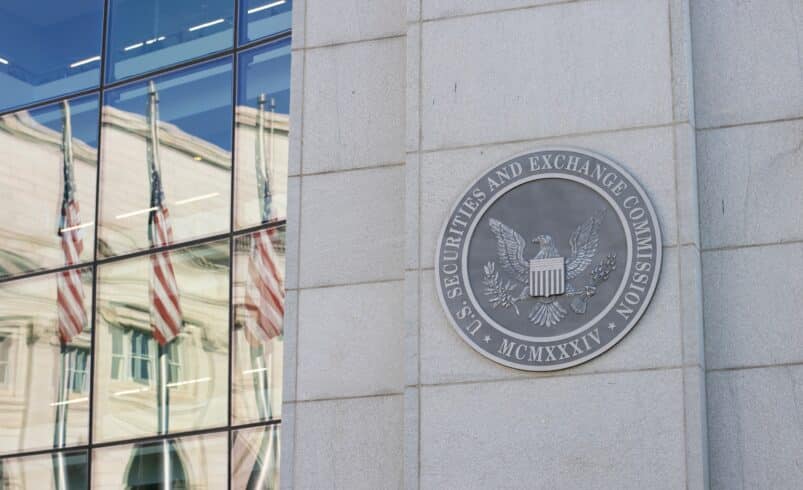Understanding the Role of the SEC in Financial Market Regulation

The U.S. Securities and Exchange Commission (SEC) serves as a federal regulatory body with a primary focus on safeguarding investors, upholding the integrity of market operations, and aiding in the process of capital formation.
Originating in the depths of the Great Depression in 1934, the SEC was formed in response to the enactment of the Securities Act of 1933, a groundbreaking federal statute governing securities issuance. This establishment was aimed at administering and enforcing the provisions of this law.
The SEC’s Regulatory Scope
The SEC’s purview encompasses a wide range of financial entities, including broker-dealers, investment firms, financial advisors, clearing and transfer agencies, credit rating entities, and securities exchanges. Moreover, it supervises various organizations, such as the Financial Industry Regulatory Authority, the Municipal Securities Rulemaking Board, and the Public Company Accounting Oversight Board.
This jurisdiction was further extended in 2010 with the adoption of the Dodd-Frank Act, incorporating municipal advisors and additional entities under its regulatory umbrella.
Structure and Leadership within the SEC
At its helm, the SEC is led by up to five commissioners. These commissioners are presidential appointees, confirmed following Senate approval. A rule of political balance restricts the number of commissioners from a single party to a maximum of three.
The SEC is structured into several divisions focusing on distinct areas, including enforcement, corporate finance, economic and risk analysis, market regulation, and investment management. Each division plays a critical role in fortifying the Commission’s functionality.
For instance, the Division of Corporation Finance ensures the dissemination of essential information to investors for informed decision-making. In contrast, the Division of Enforcement rigorously pursues potential breaches of federal securities laws.
The SEC’s Fundamental Objectives
The SEC is primarily charged with the protection of investors. This involves guaranteeing access to precise and pertinent data regarding publicly offered securities and shielding them from deceitful or manipulative actions.
Additionally, the Commission strives to uphold markets that are fair, well-ordered, and efficient through the regulation of various market actors, including exchanges and securities brokers.
A significant aspect of the SEC’s role is to facilitate the process through which companies acquire capital. This is achieved by supervising the release of new securities and ensuring adherence to regulatory standards.
The SEC’s Involvement in Cryptocurrency Regulation
Historical and current leaders of the SEC have indicated that many digital currencies might be classified as securities. Jay Clayton, a former chairman, took a firm stance against initial coin offerings in 2017, citing their potential for reduced investor protection compared to conventional markets, which might result in increased fraudulent activities and market manipulation.
Gary Gensler, the present chairman, has issued advisories for cryptocurrency exchanges to register with the SEC. In recent years, the Commission has targeted various companies, including Coinbase and Kraken, accusing them of functioning without proper registration as exchanges, brokers, or clearinghouses. In 2023, the SEC pursued legal action against Binance, alleging that the exchange deceived its clients and misallocated funds to investment pools controlled by its previous CEO, Changpeng Zhao.
The SEC has also turned its attention to Non-Fungible Tokens (NFTs). Charges were brought against Impact Theory, a Los Angeles-based podcasting studio, for supposedly offering NFTs without proper registration. Following this, Stoner Cats 2 LLC was similarly charged for an unregistered NFT offering.
Legislators are drafting laws to regulate digital currencies more clearly, though such laws have not yet been enacted.
Endorsement of Spot Bitcoin ETFs by the SEC
Marking a significant development in the cryptocurrency sector, the SEC sanctioned the launch of spot bitcoin exchange-traded funds (ETFs) in early 2024. This came years after Cameron and Tyler Winklevoss initially proposed a spot bitcoin ETF to the agency in 2013.
A critical moment leading to the SEC’s approval occurred in the summer of 2023 when judges ordered the SEC to reassess Grayscale Investments’ spot bitcoin ETF proposal.
In their ruling, the judges specifically addressed how the SEC treated spot bitcoin ETFs as opposed to bitcoin futures ETFs. Before granting its approval, Grayscale demonstrated that its proposed bitcoin ETF was similar to previously approved bitcoin futures ETFs, both in terms of underlying assets and surveillance-sharing agreements. The judges noted that this similarity should ensure equal effectiveness in detecting fraud or manipulation in bitcoin and bitcoin futures markets.
The SEC greenlit 11 spot bitcoin ETFs from entities like BlackRock and Fidelity. However, Chair Gensler clarified that this did not constitute an endorsement of Bitcoin by the agency. This approval allowed both institutional and retail investors to engage with Bitcoin via more conventional investment avenues. Following this decision, spot bitcoin ETFs attracted billions of dollars in investments.
As of now, the SEC has not approved any spot Ethereum ETFs.
Editorial credit: Tada Images / Shutterstock.com
DISCLAIMER: It's essential to understand that the content on this page is not meant to serve as, nor should it be construed as, advice in legal, tax, investment, financial, or any other professional context. You should only invest an amount that you are prepared to lose, and it's advisable to consult with an independent financial expert if you're uncertain. For additional details, please review the terms of service, as well as the help and support sections offered by the provider or promoter. While our website strives for precise and impartial journalism, please be aware that market conditions can shift unexpectedly and some (not all) of the posts on this website are paid or sponsored posts.









